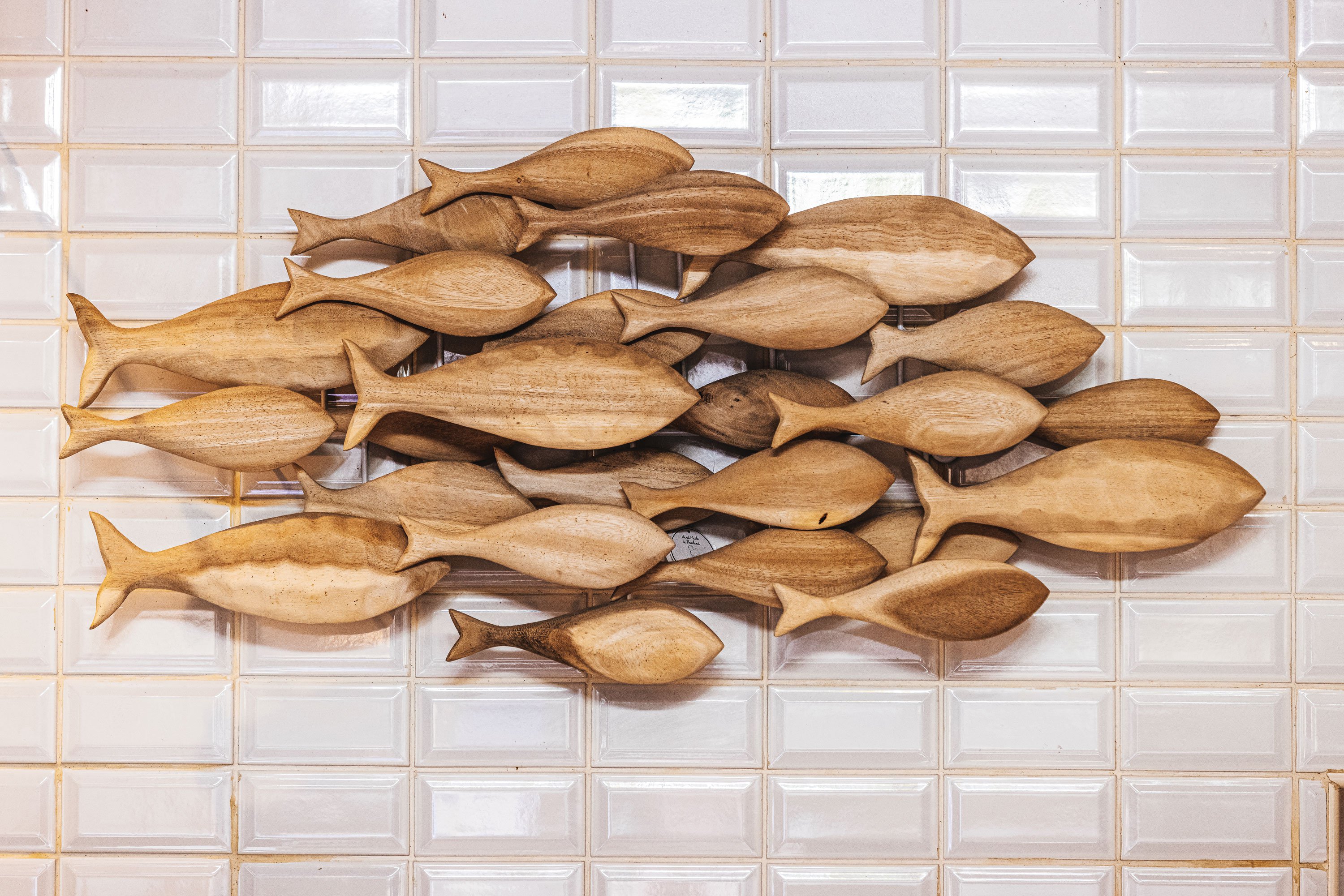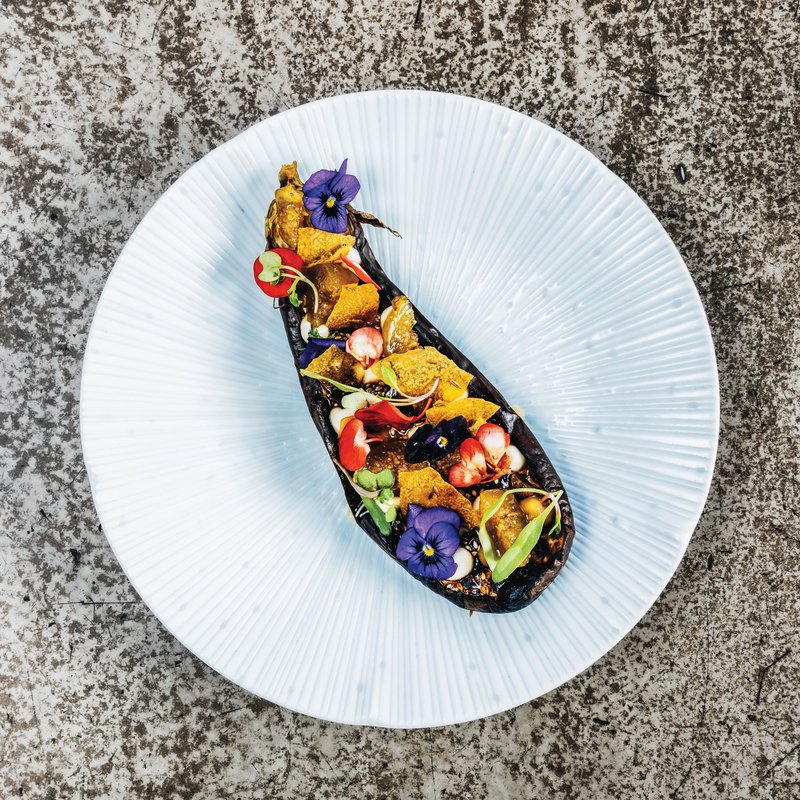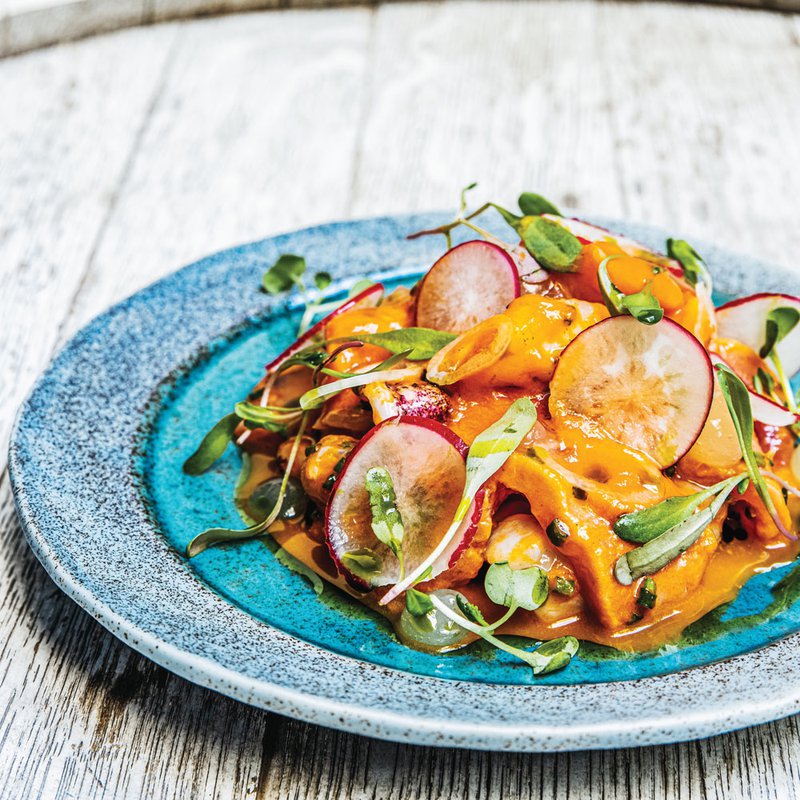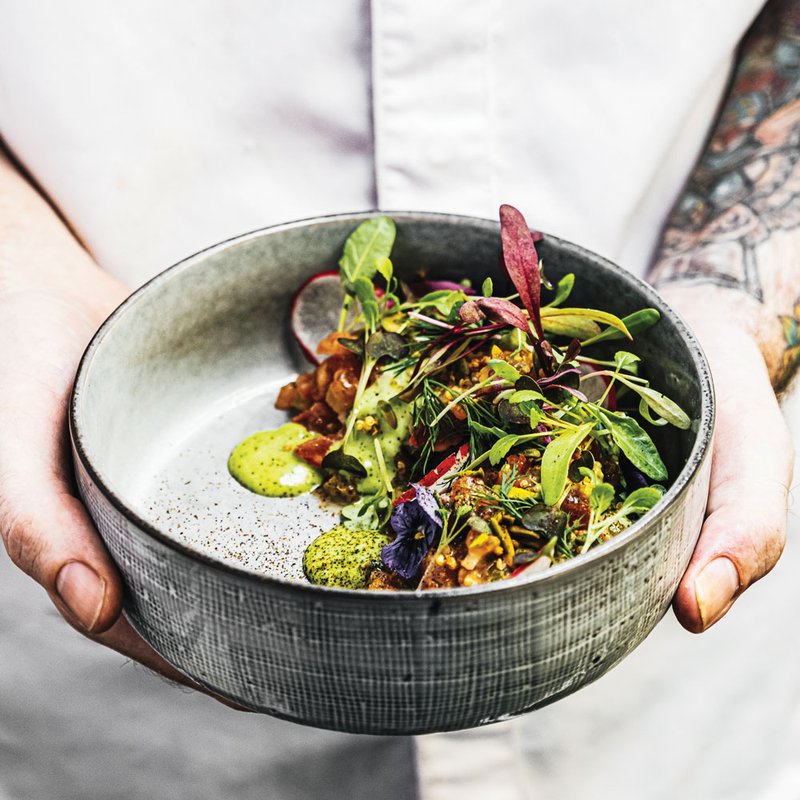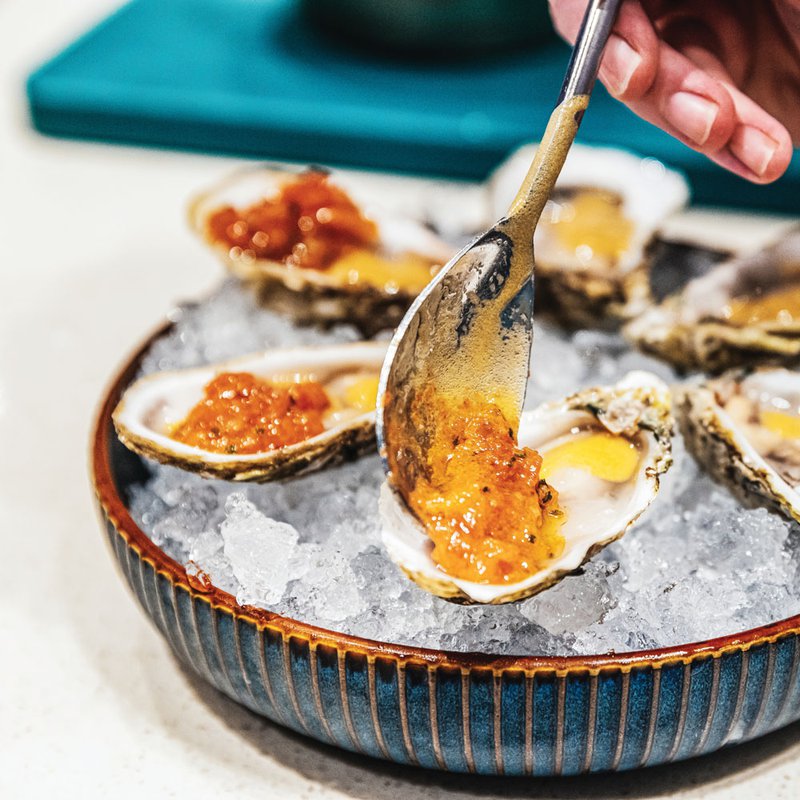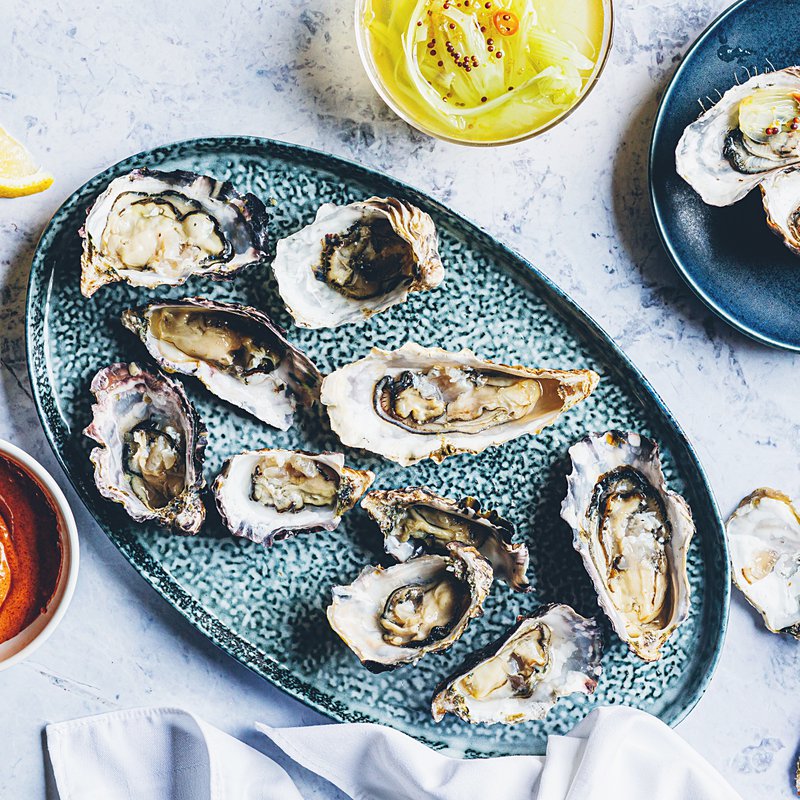While BOCA is set in DIFC among giants, it really has managed to stay true to itself – offering modern Spanish-Mediterranean fare, in a casual environment, while celebrating local ingredients and serving up a fine dining experience. Was this always the plan?
Omar: Yes. When we were given the space, we wanted to create something that was contemporary and would complement the offering in DIFC, which is why we modelled BOCA on a modern tapas-style restaurant, like those in London or Barcelona at the time. More importantly, because we were a home-grown concept, we wanted to pay tribute to local ingredients. From the start, our chefs have gone to local markets with cash in hand to have the freedom to pick whatever is good and fresh, or buy direct from suppliers. I think because we are small and don’t have to function like the big restaurant groups, we have more freedom – which has given us space to be creative and explore the local offering, too.
Was it not difficult at the beginning to source ingredients locally?
Omar: We started off small, but realised this was a unique direction and we have been figuring it out ever since. As we have developed, so have a lot of farms in the UAE. You will see this in the evolution of our menu. For example, 80 per cent of our fish and seafood is sourced locally. Our story has definitely become a lot more exciting as we can talk about the likes of Dibba Bay Oysters, Pure Harvest tomatoes, or Mary Anne’s edible flowers, to name just a few pioneering companies with whom we work.
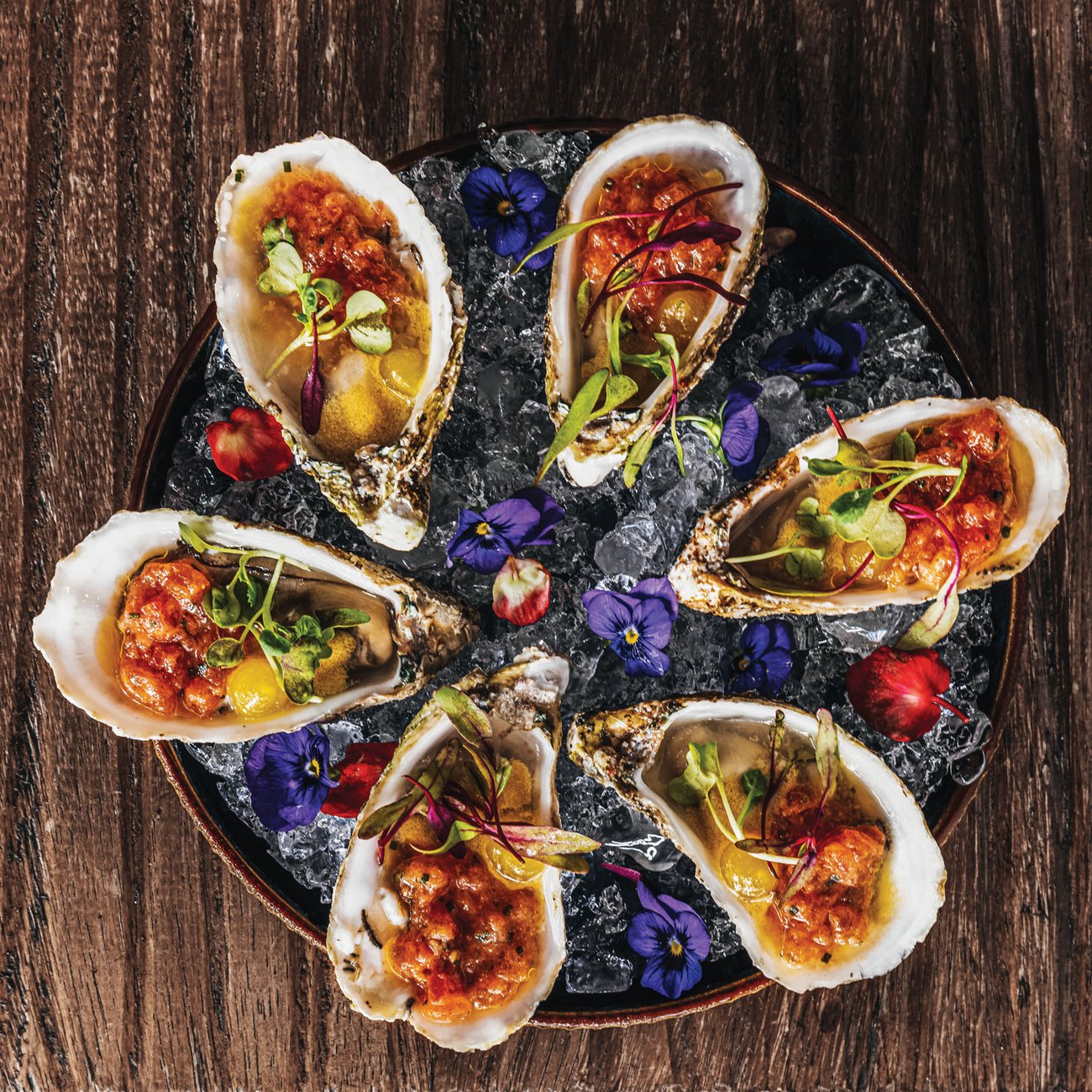
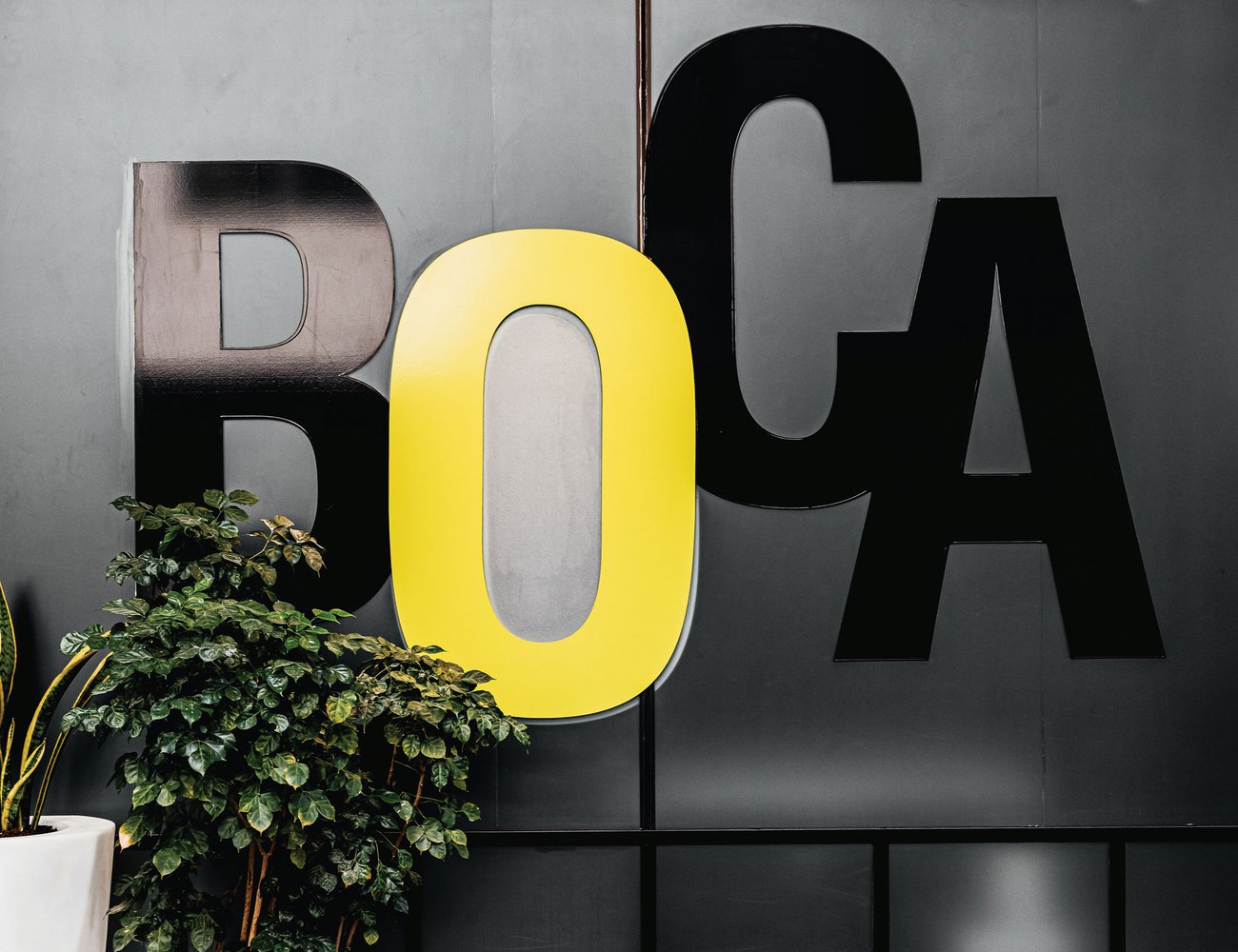
Are there any local ingredients which have been challenging or interesting to work with?
Omar: During the summer, there hasn’t always been variety in terms of “homegrown” ingredients and our menu during this period has always been the least exciting. We challenged ourselves to see what we could do with what was available – so we looked at the local seafood offering and cooked up scallops, razor clams and a lot of sea snails! Only the latter (after much trial and error) made it onto the menu.
We also have and will continue to work with native edible plants. The Jameel Arts Centre put us onto these and introduced us to Yasin, who runs a wild plant nursery in the middle of the desert. He is extremely knowledgeable about flora from the region and what you can do with them. We’ve worked with five varieties so far – three of which we now grow outside BOCA.
From the start, our chefs have gone to local markets with cash in hand to have the freedom to pick whatever is good and fresh, or buy direct from suppliers.
Beside sourcing locally, BOCA really has made a name for itself for all its sustainable initiatives of late. What started this journey?
Omar: A bell started ringing when we realised how much waste we were producing and just how much consumption we were encouraging as a restaurant. This revelation made us evolve and multiply our sustainability efforts.
How have you implemented initiatives to combat waste across the business?
Omar: In terms of the kitchen – like any professional outlet – we have always maximised our use of ingredients where possible. What we focus on now is how we can take any food waste and make it a main ingredient – something like our dehydrated tomato skin salt is a good example.
There’s huge scope for our mixology team to be inventive and we challenge them on this. You should see the drinks, lollipops and garnishes they’ve created out of juice, pulp, rinds and husks.
Everyone in the company is involved and there are so many stories – the man in charge of our maintenance came up with the idea of using all our corks from empty bottles to make mats which we use in service for hot dishes.
Then of course, there’s managing the waste. We appointed a waste officer whose job it is to take measurement of everything that still leaves the restaurant – this helps us keep on top of which areas need attention.
And is it true you’re turning your used cooking oil into clean, green fuel – how?
Omar: Yes, we’re working with Neutral Fuels, which collects used cooking oils and converts them into bio diesel. All this recycling is done locally, but in accordance with the Basel International Convention on waste management. This initiative is one way we can play our part in achieving the UAE’s 2030 greenhouse gas emission reduction targets. We are also paid for the used oil – I hope this encourages others to investigate this option; adopting a sustainable approach doesn’t have to always come at a cost.
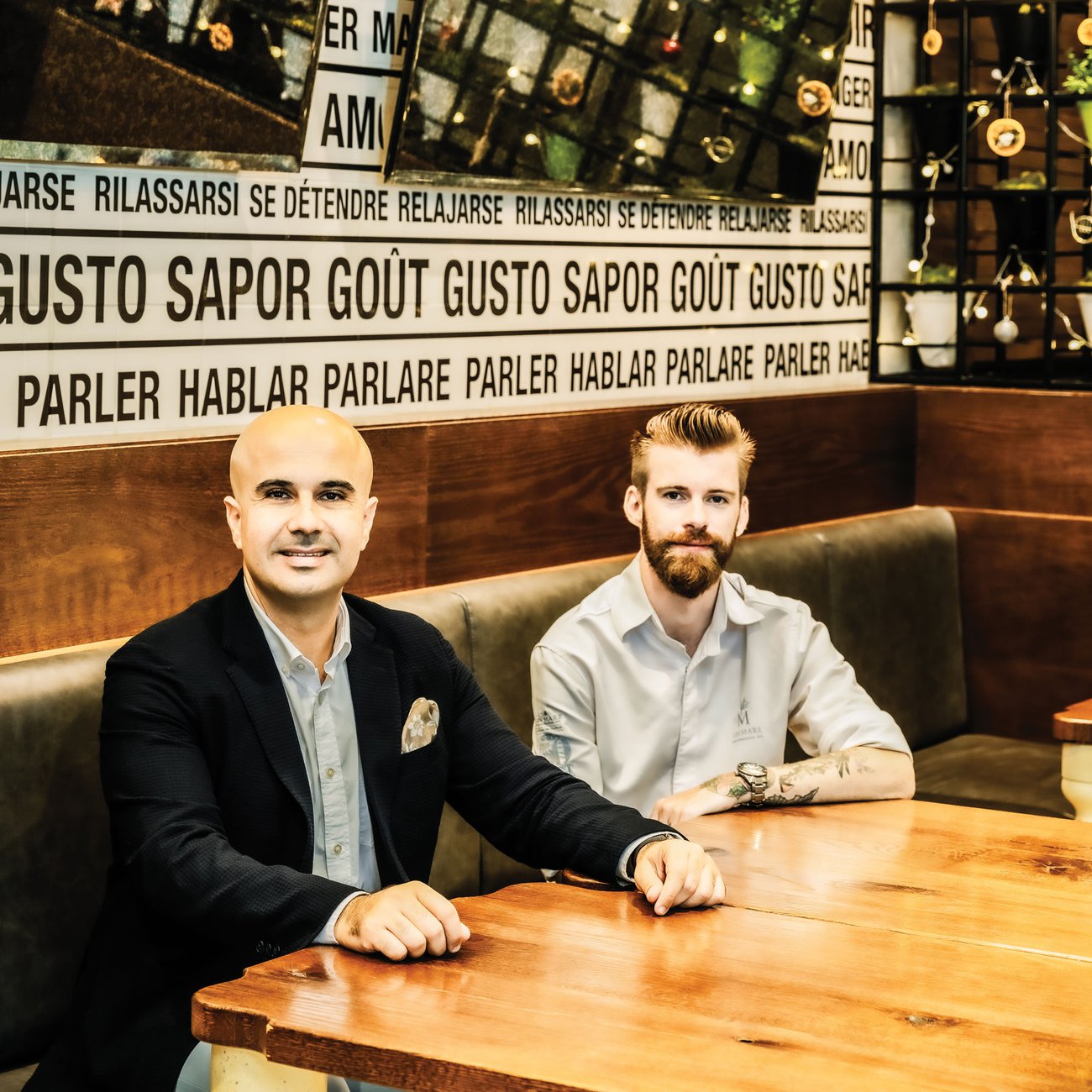
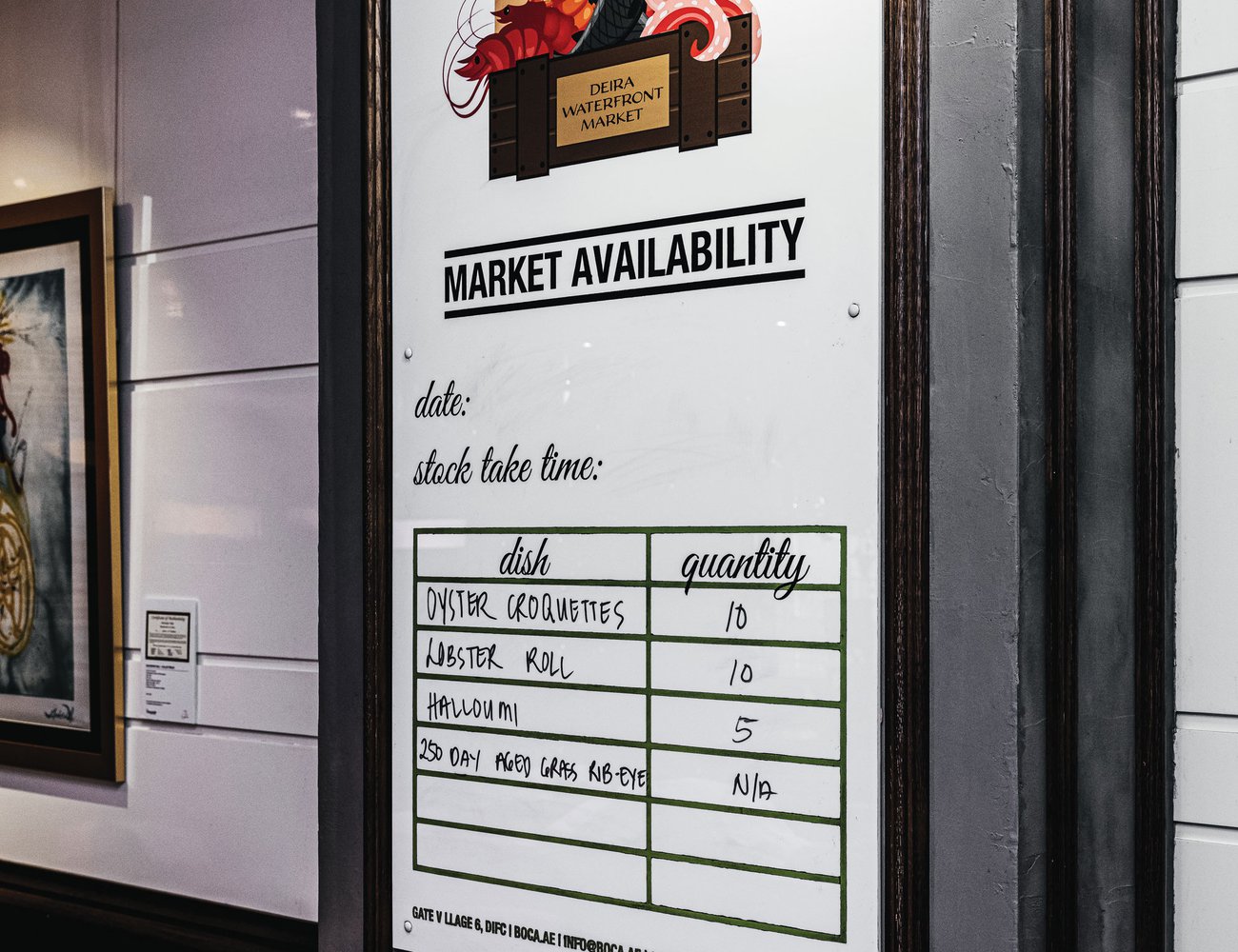
You’re working with Dubai-based consultancy elementsix on your wider sustainability strategy – why did you decide to enlist their help?
Omar: It is important for us to audit our operations and production lifecycle to assess our greenhouse gas emissions. This enables us to see where we stand and how we can achieve carbon neutral status. We’re looking at everything from reducing energy and water consumption to finding alternatives to ingredients that have a significantly high carbon footprint.
In addition, elementsix is advising us on methods to offset unavoidable emissions so that we can then advise our guests on how to offset their meals with us as well.
One major outcome from the partnership has resulted in BOCA running on 100 per cent renewable energy – tell us about this.
Omar: With the help of elementsix, we were able to calculate the amount of electricity we use and evaluate the environmental impact of this consumption. To reduce the latter, we found a solution to source our energy from solar power generated by the Mohammed bin Rashid Al Maktoum Solar Park, which feeds electricity into Dubai’s main grid. We’ve acquired international renewable energy certificates from the Park to meet 100 per cent of our electricity consumption. With this purchase, we can save approximately 75 tonnes of CO2 emissions, which is close to a 20 per cent reduction in our overall carbon footprint.
What drives both you and chef Matt personally to care about waste and a sustainable approach?
Matt: I’m from the Netherlands and recycling or not being wasteful is ingrained in us from a young age – probably because we’re stingy people by default! We save every penny and if something is broken, we’ll do everything we can to fix it! I remember going grocery shopping with my mum when I was four years old – we’d always use the same bags until they were torn to pieces. What drives me today in terms of sustainability is the opportunity it gives me to be creative.
Omar: I grew up learning to make everything out of the limited resources we had. And this has been the constant challenge we face at BOCA. Like Matt, I’m passionate about working on creative solutions across the business – while ensuring our result is always on par with what customers expect from a fine-dining restaurant.
The work BOCA has and is doing in terms of sustainability has not gone unnoticed. Chef Matt and the restaurant has received multiple accolades, including being named Sustainable Business Model of the Year award at the Gulf Sustainability Awards in 2021. Are you proud of these achievements?
Omar: Honestly, I am extremely happy that our efforts are being recognised. More importantly though, I’m thrilled that this is the result of a collective effort – the whole team is involved.
Since lockdown, everyone in the restaurant industry has been busting their guts to pivot and pull through. It forced us at BOCA to take stock of what we have, get rid of any fluff and focus on and perfect our narrative.
Yes, we’ve started the conversation about sustainability, but this is just the beginning. We’re as obsessed with this topic as we are about remaining true to hospitality and gastronomy. We don’t follow fads or trends – instead, we try to do everything genuinely and beautifully. This is how we’ve always been and we can’t stop.
